
The journal club takes place every semester, and usually meets every other week. Typically, every PhD student will choose a paper (of their interest, or of their own work) that is relevant to the topics of complex systems and brain science, and give a 25-30 minute presentation on the paper. Then, everyone has a discussion and offers a critical analysis of the paper, including its style of writing, its logic, its conclusions, and its philosophical presuppositions. See rules below.
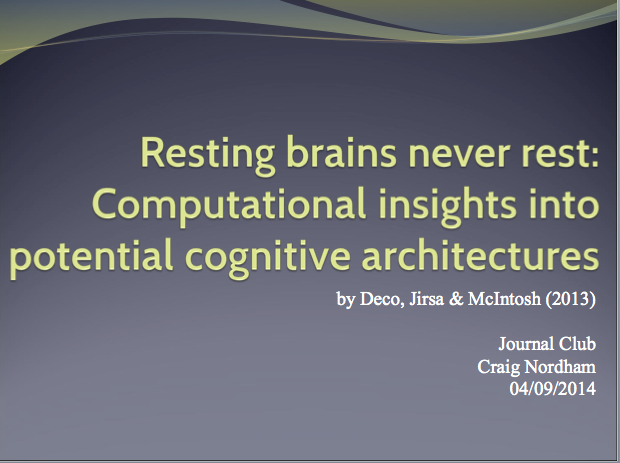
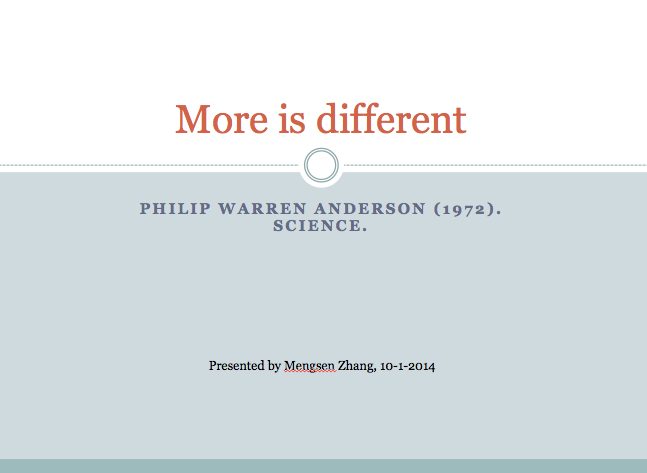
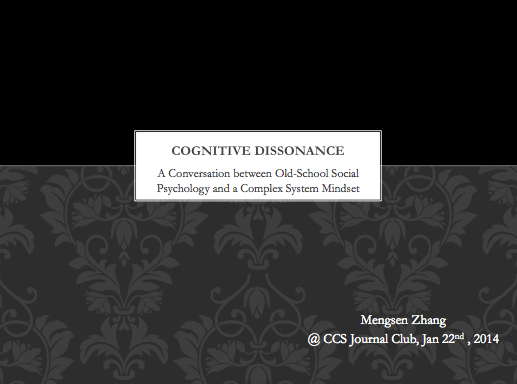
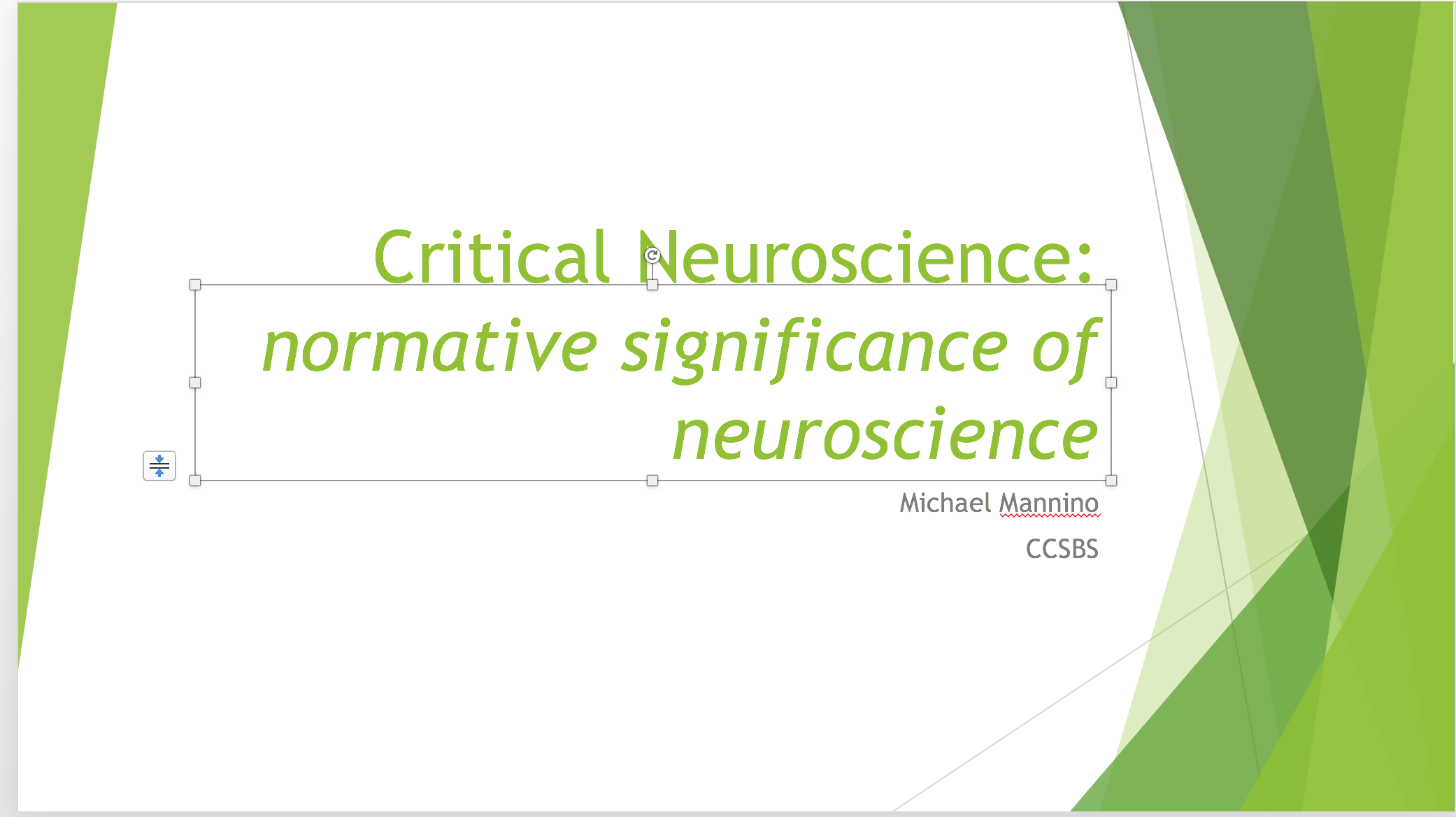

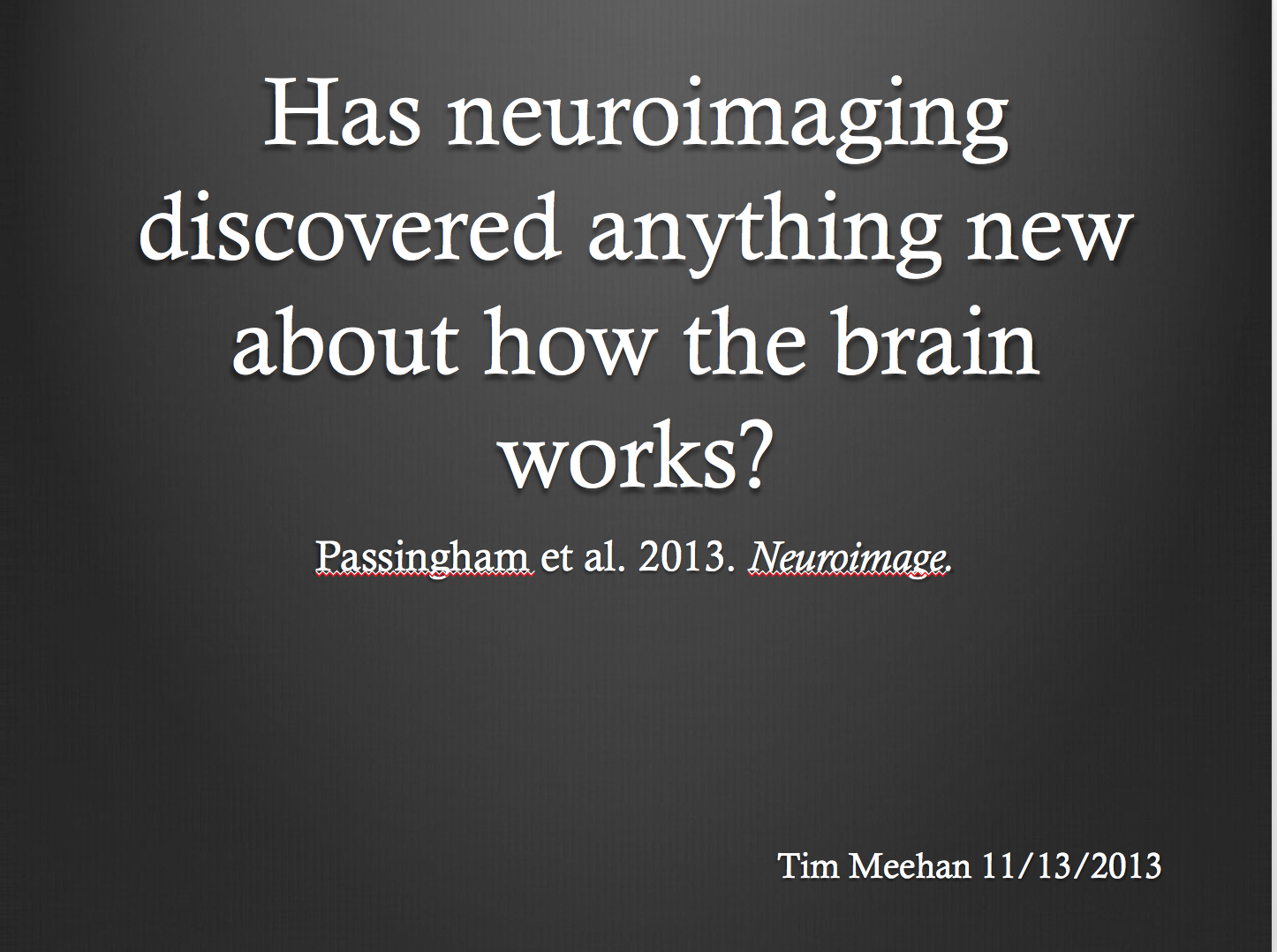
Coming Soon!
The central goal of this
Journal
club
is to facilitate a multi-disciplinary approach in a discussion format by expanding our knowledge base and critical thinking skills, (with respect to relevant issues in psychology, complex systems and brain sciences, and philosophy.)
Given that, here are some important “Guidelines” for participation, that will help foster an amicable, fun, yet scholarly environment:
1) This is not solely a
journal
club
, but also a discussion forum. Thus, it is not required that an article be presented at every meeting. Indeed, some meetings may be in-depth discussions centering on a topic offered by a participant, who will help lead that discussion. For example, if an article is going to be presented, then the volunteer who proposed the article will help lead a discussion, and the article will be available on our blog (see below) ahead of time for everyone to read. If, for example, a topic (rather than an article) is proposed, then the participant who proposed this topic will help lead a discussion, generate questions, etc. In addition, movies, video clips, podcasts, etc., will be shown as well as traditional conversational formats.
2) This
club
will not be too formal, so one can expect free discussion in a relaxed environment. It should be an oasis from normal classroom settings where there is an opportunity for more freedom to bring topics that they are passionate about (which of course includes their own work, though, the discussions need not always revolve around an individual's presentation of one
journal
article), issues they find challenging, or useful points related to scientific research.
3) However, it will also not be too casual, that is, all discussions will be focused and remain on topic. The traditional
journal
club
format will always be present, that is: in depth, fine-grained, critical analysis of a paper or topic.
4) Academic freedom is essential; that is, freedom to bring forth new ideas, and to challenge (in a respectful manner) new ideas without condemnation will be maintained at all times. Most importantly, we will strive for this to be an open, friendly, supportive atmosphere, in which our understanding of various scientific areas is enriched, as well as our understanding of what it means to think critically about such areas.
5) A central component of the
journal
club
is to develop critical thinking skills. Part of critical thinking is to learn how to develop essential ‘intellectual virtues’ such as: a questioning mind, an uncompromising commitment to good reasoning and clear thinking, intellectual humility, intellectual courage, intellectual empathy, intellectual integrity, fair-mindedness, and intellectual autonomy. Being a cultivated, high-level, critical thinker allows one to identify hidden assumptions and presuppositions, evaluate evidence for any claim, avoid common logical fallacies, recognize and solve complex problems, maintain a logically consistent and ethical worldview and to understand the use of language and how it deeply affects our thinking.
6) Topics will be allowed to span a range from narrow to broad--for example, from particular published findings, to issues and challenges you face in your own work, to broader conceptual and theoretical points--and the discussions may be anchored on other media besides
journal
articles, such as short videos or demonstrations.
7) Volunteers for the sessions should suggest new topics, so please be thinking about topics of which you might like to present and lead a discussion.
8) There is a blog at
http://ccsbs.wordpress.com/
, which will serve as a repository for the
club
. Posts could include announcements, meeting notes, links to articles of interest, along with discussion on any of these topics. Further, it will remain 'open access ' in the sense that anyone who attends the
club
and wants to may contribute to the blog.
9) This
club
belongs to everyone, and thus any of this (and the
club
itself) is subject to change.
10) Coffee and snacks will be available!